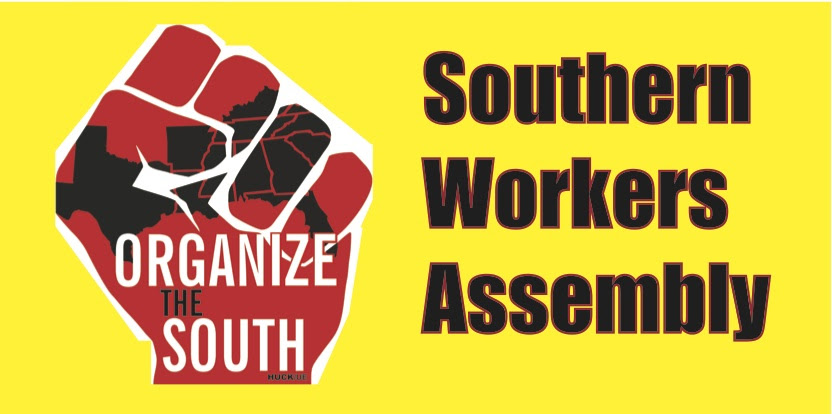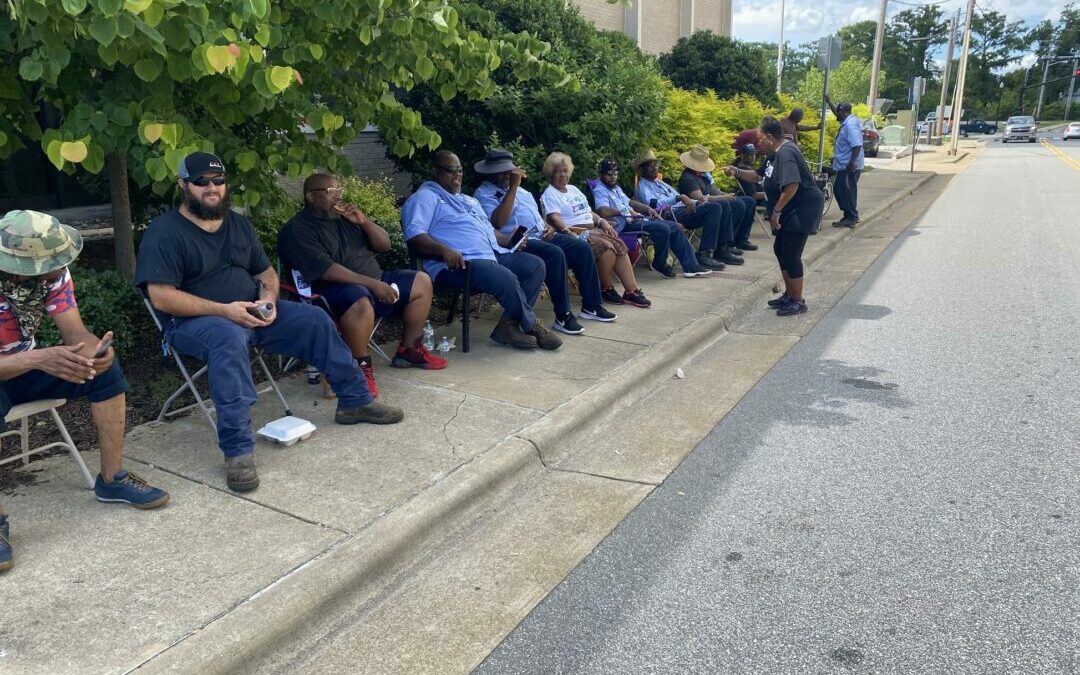After three years of receiving zero pay raises and working 16 months through a global pandemic with no recognition or hazard pay, city workers in Elizabeth City, N.C., staged a two-day work stoppage June 29-30. The Black-majority workers in the city’s Public Works and Water and Sewer departments were upset by City Council’s vote to deny their proposed raise this year.
Upon coming to work June 29, workers self-organized, loading up their work trucks and driving to City Hall, where they surrounded the building, honking their horns and clogging up traffic. They refused to work the entire day. They gave the city a deadline of 7:00 p.m. the next day to get it right. The next day, they all caught the “blue flu” at 10:00 a.m., clocked out and began a sit-down occupation of the sidewalk surrounding City Hall. Community and family members swarmed in to cook hamburgers and hot dogs, bringing food to the struggling workers.
“We are on strike because we are underpaid,” employee Cody Parker told WAVY TV 10. “They don’t want to pay us what we need to be paid.” Workers in the Water and Sewer Department start as low as $12 per hour, even with a CDL-A heavy equipment operator license.
Black Lives Matter protesters, who were on the 60th consecutive day of protesting against the police murder of Andrew Brown, joined the actions to show support and unity. Colonial Avenue, on the south side of the municipal building, was closed down due to activists painting “Black Lives Matter” in big bold yellow letters on the street that same day. Andrew Brown was murdered by Pasquotank County sheriffs the day following the George Floyd verdict.
Strikes a Southern trend
This important job action comes on the heels of Black worker-led municipal strikes in recent months across the South. New Orleans Public Works city workers walked out June 28 for higher pay. Waste Management workers in Virginia Beach, Va., just north over the border from Elizabeth City, staged a work stoppage Aug. 25, 2020, demanding hazard pay for working during COVID-19.
Virginia Beach city workers have been organizing the last eight months with the United Electrical Workers to form a union. State law in Virginia changed effective May 1, granting city workers the right to collective bargaining for the first time since the right was taken away in the Jim Crow era. (See locals.ueunion.org/111)
Elizabeth City Council originally voted down the raise by linking it to the local property tax. This helped the city form an alliance with the property owners in town, who are strongly against raising any taxes. However, due to the workers’ powerful action and with strong community support, City Council voted again — this time in favor of a small increase in property taxes to fund a 4% raise for all city workers, and they agreed to study the possibility of raising all city workers up to $15 per hour minimum.
City workers who belong to UE Local 150, North Carolina Public Service Workers Union, won $15 per hour minimum base wages in five cities over two years ago and have since built strong wage systems on top of that. (See UE150.org )
Members of the Southern Workers Assembly are supporting worker organizing across the South, including by municipal workers through forming Local Workers Assemblies. New assemblies, besides those already built in Durham, Raleigh and Charlotte, N.C., are forming in Virginia Beach, Va.; Tampa, Fla.; New Orleans; and Kentucky.
These militant worker actions connected to a long-term social movement union strategy are what is necessary to organize labor across the largely nonunion South.

